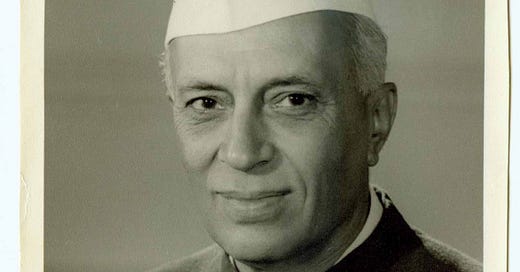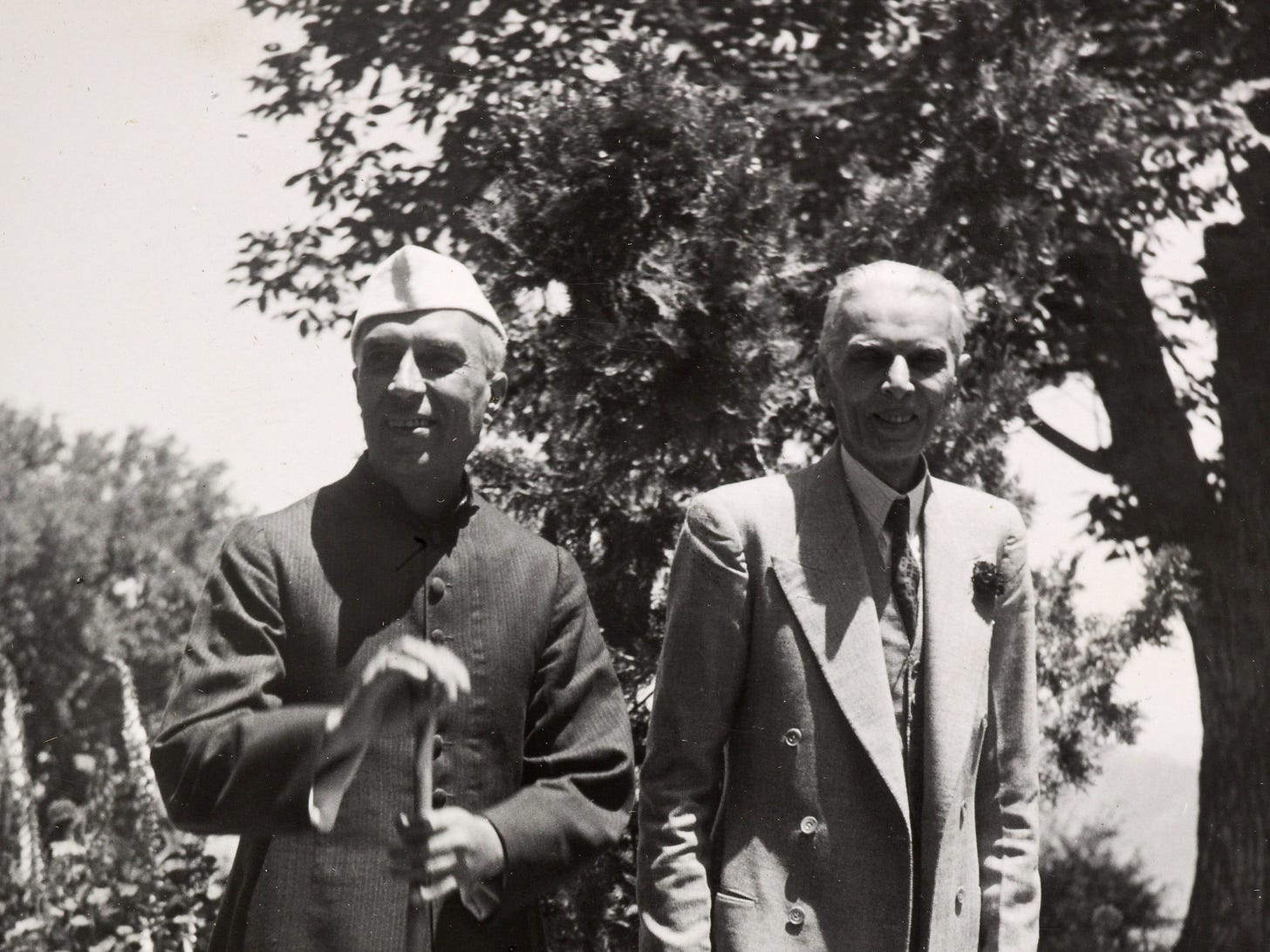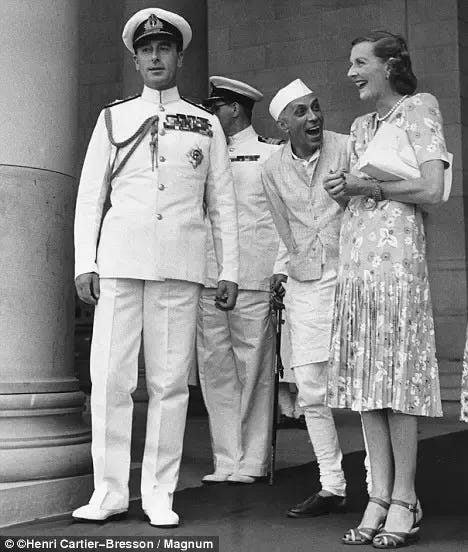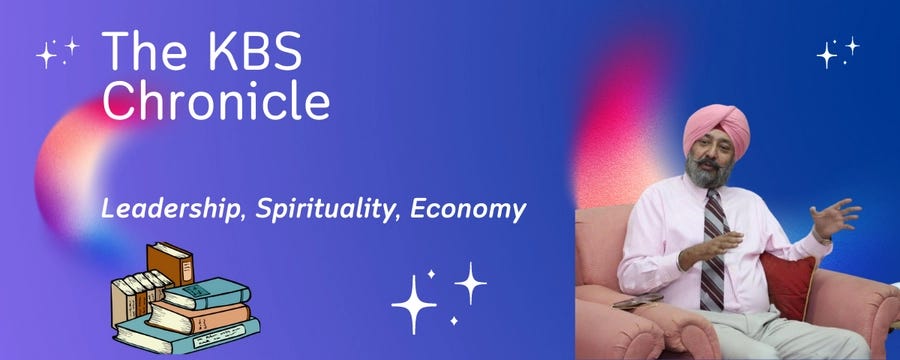Pandit Nehru on his 60th Death Anniversary: The Good, the Bad and the Spicy
On the occasion of his death anniversary, we offer a 360° perspective on Pandit Jawaharlal Nehru, celebrating the multifaceted legacy of a leader who shaped the destiny of our nation.
Reflecting on Nehru's Legacy Amidst a Charged Political Climate
As we commemorate the 60th death anniversary of Pandit Jawaharlal Nehru on 26th May 2024, it is fitting to revisit his life and legacy amidst a particularly contentious period in India's political landscape. Arguably the most important figure in post-independent India, Nehru's legacy continues to evoke spirited debates. This year, the nation finds itself in the midst of a fiercely contested seven-phase Lok Sabha election. Nehru's Congress party, now leading an opposition alliance, is seeking to oust the incumbent Prime Minister Narendra Modi. With the final phase of polling set for 1st June and the counting scheduled for 4th June, the political atmosphere is charged, making it an apt moment to reflect on Nehru's enduring influence on India's democracy and development.
The Good
Pandit Jawaharlal Nehru, a central figure in Indian politics and the first Prime Minister of independent India, is well-known for his contributions to the nation's founding and development. However, there are many aspects of his life and personality that are less known to the general public. Here are some interesting, facts about Nehru:
Literary Pursuits: Nehru was not only a politician but also a prolific writer. His works include 'The Discovery of India', 'Glimpses of World History', and his autobiography 'Toward Freedom'. These writings offer deep insights into his thoughts and the era he lived in.
Interest in Astronomy: Nehru had a keen interest in astronomy and science. He often spent time gazing at the stars and even brought a telescope to Teen Murti House, the Prime Minister's residence.
Fluent in French: Nehru was fluent in French, which he learned during his time at Harrow and Cambridge. This skill proved beneficial in diplomatic circles, especially in interactions with French-speaking leaders.
Passion for Roses: He had a deep love for nature and gardening, particularly roses. The Mughal Gardens at the Rashtrapati Bhavan (the Presidential Residence) in Delhi were tended under his direct supervision and care.
Fashion Icon: Nehru's sense of style made him a fashion icon of his time. The Nehru jacket, a variation of the traditional Indian achkan or sherwani, became popular in the West during the 1960s.
Interest in Children's Education: Nehru's affection for children was profound. He established the Children's Film Society India in 1955 to create and distribute children's films in India.
Friendship with Albert Einstein: Nehru shared a friendship with the renowned physicist Albert Einstein. They exchanged letters discussing various subjects, including the philosophy of science and world peace.
Prison Time: Nehru was imprisoned several times during India's freedom struggle. His total time spent in British jails amounted to more than nine years.
Architect of Modern India: Nehru's vision for a modern India led to the establishment of many institutions of higher learning and research, such as the Indian Institutes of Technology (IITs), the Indian Institutes of Management (IIMs), and the All India Institute of Medical Sciences (AIIMS).
Environmental Awareness: He was ahead of his time in understanding the importance of environmental conservation. Nehru emphasized the need for sustainable development and the preservation of India's natural resources.
These aspects of Nehru's life highlight his multifaceted personality, extending beyond his well-known political career to his interests in science, culture, and the arts. They provide a more comprehensive view of a leader who played a pivotal role in shaping modern India.
The Bad
Pandit Jawaharlal Nehru, while revered for his leadership and contributions to India's independence and early years as a sovereign nation, also faced controversies and criticisms during his tenure as Prime Minister. Here are some of the key controversial aspects associated with Nehru:
Partition of India: Nehru's role in the partition of British India into India and Pakistan in 1947 is often debated. Some critics argue that his insistence on becoming the first Prime Minister led to the hurried and ill-planned partition, resulting in immense communal violence and displacement.
Kashmir Policy: Nehru's handling of the Kashmir issue, particularly his decision to take the dispute to the United Nations and agreeing to a plebiscite, has been a subject of controversy. Critics argue that these decisions have led to the long-standing conflict in the region.
China Policy: His policy towards China, especially in the context of the Sino-Indian War of 1962, is seen as a significant blunder. Nehru's belief in Hindi-Chini Bhai Bhai (Indians and Chinese are brothers) and the subsequent betrayal by China, resulting in a humiliating defeat for India, severely dented his image.
Economic Policies: Nehru's socialist-leaning economic policies, centered around state-led industrialization and a mixed economy, have been both lauded and criticized. Some argue that these policies led to inefficiencies and slowed economic growth.
Language Policy: Nehru's push for Hindi as the national language met with strong resistance, particularly in South India. This led to the imposition of Hindi being perceived as linguistic imperialism by non-Hindi speaking states.
Nehru-Gandhi Dynasty: Nehru's succession by his daughter, Indira Gandhi, marked the beginning of the Nehru-Gandhi dynasty in Indian politics, a topic of ongoing debate about nepotism and dynastic politics.
Dismissal of State Governments: During his tenure, Nehru dismissed several state governments, especially those not run by the Indian National Congress. This move was seen as an overreach of the central government's powers.
Foreign Policy Stances: Nehru's non-alignment policy during the Cold War era was controversial. Some critics argue that it left India isolated and without strong allies, impacting its geopolitical influence.
Treatment of Political Opponents: Nehru's treatment of political opponents, such as the socialist leader Ram Manohar Lohia and the communist leader A.K. Gopalan, has been criticized for being undemocratic.
Education Policy: While Nehru's efforts in establishing institutions of higher learning are celebrated, some critics argue that his education policy did not do enough to improve basic literacy and primary education across the country.
These controversies reflect the complexities and challenges Nehru faced in leading a newly independent nation with diverse social, economic, and political landscapes. They also offer a more nuanced understanding of his legacy, beyond his celebrated achievements.
The Spicy
Pandit Jawaharlal Nehru's personal life, particularly regarding alleged extra-marital affairs, has been a subject of speculation and controversy. While discussing these aspects, it's crucial to approach them with sensitivity and an understanding of the historical context.
Lady Mountbatten: One of the most talked-about relationships is that with Edwina Mountbatten, the wife of Lord Mountbatten, the last Viceroy of India. Their close friendship has been widely documented in letters and photographs, leading to much speculation about the nature of their relationship. However, most historians agree that while they shared a deep emotional bond, it was more a relationship of mutual admiration and respect rather than a romantic affair.
Padmaja Naidu: Nehru's close association with Padmaja Naidu, the daughter of Sarojini Naidu, has also been the subject of speculation. They were known to have a very close friendship, but again, evidence suggesting anything beyond a deep platonic relationship is scarce.
It's important to note that these discussions are often based on interpretations of personal letters and anecdotal evidence, which can be subjective. Nehru's personal life has always been a topic of interest, but without concrete evidence, any claims about extra-marital affairs remain speculative.
In historical research and discussions, especially concerning personal lives of historical figures, it's essential to differentiate between verified facts and conjectures based on limited evidence. Nehru, as a prominent public figure, has had various aspects of his life scrutinized, but it's crucial to approach these topics with a balanced perspective, acknowledging the line between confirmed historical facts and conjecture or speculation.
Summing up: On His Death Anniversary
As we commemorate the 60th death anniversary of Pandit Jawaharlal Nehru, it is a moment to reflect on the legacy of a man who was not just a pivotal figure in India's struggle for Independence but also a visionary architect of modern India. His profound commitment to democracy, secularism, and social progress laid the foundation for the India we know today.
In the midst of a fiercely contested Lok Sabha election, it is ethically permissible to critique Nehru's policy decisions. However, attacking the personal character of a leader who passed away six decades ago is not in good taste. Nehru may not have been perfect, but he was par excellence. His enduring dedication to the ideals of unity, scientific temper, and inclusive development continues to inspire.
Nehru's deep affection for children, earning him the endearing title of 'Chacha Nehru,' reflects his hope and belief in the future generations of India. Today, we pay homage to Pandit Nehru, a great son of India, whose contributions to our nation's history and identity remain an integral part of our collective memory. Despite the controversies and complexities of his tenure, Nehru's legacy stands tall and assured in the history of this country, continuing to guide us on the path of progress and harmony.








I was Assistant Housing Commissioner in the Land and Housing Department of the Delhi Administration. We were moved to Indraprastha Bhawan, New Delhi from 5, Alipur Road in June, 1963. Indraprastha Bhawan was inaugurated by Jawahar Lal Nehru. On May 27, 1964, my assistant entered my room and told me that Jawahar Lal Nehru passed away.